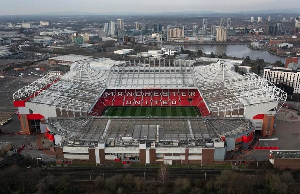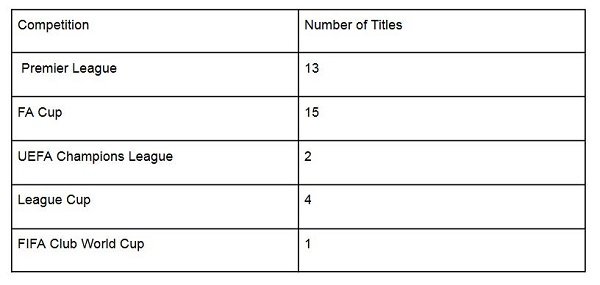 Manchester United's Old Trafford
Manchester United's Old Trafford
Manchester United, one of the most storied football clubs in the world, has a rich history that spans over a century. From its humble beginnings to its status as a global giant, Manchester United's journey is a testament to resilience, talent, and strategic vision.
This article explores the key milestones, legendary players, and transformative moments shaping the club's legacy.
Early Beginnings
Manchester United was founded in 1878 as Newton Heath LYR Football Club by the Carriage and Wagon department of the Lancashire and Yorkshire Railway depot at Newton Heath. The club struggled financially and faced numerous challenges in its early years.
Key Early Milestones
Manchester United's journey to becoming a football powerhouse began with several key early milestones:
1. Formation in 1878: Established as Newton Heath LYR Football Club.
2. 1902 rebranding: Manchester United was renamed after near bankruptcy, and it was saved by an investment from local brewery owner John Henry Davies.
3. First league title: Won their first league title in 1908 under the management of Ernest Mangnall.
Breaking Barriers
Manchester United has a long history of breaking barriers on and off the field. The club has faced numerous challenges throughout its existence but has consistently emerged stronger, setting new standards in the football world. Overcoming Financial Difficulties In its early years, Manchester United, then known as Newton Heath LYR Football Club, faced severe financial difficulties. The club was on the brink of bankruptcy in 1902.
It was saved by John Henry Davies, a local brewery owner, who invested in the club and renamed it Manchester United. This rebranding marked the beginning of a new era and set the stage for future success.
Rebuilding After the Munich Air Disaster
One of the most tragic events in the club's history was the Munich air disaster in 1958, which claimed the lives of eight players and left several others injured. Under the leadership of Sir Matt Busby, who was severely injured, Manchester United embarked on a remarkable journey of rebuilding. The club recovered and went on to win the European Cup in 1968, becoming the first English team to do so.
Promoting Youth Talent
Another barrier Manchester United broke was the reliance on experienced, high-profile players. Sir Matt Busby’s philosophy of nurturing young talent led to the creation of the "Busby Babes," a team of exceptionally talented young players like Duncan Edwards and Bobby Charlton. This focus on youth development has continued over the decades, producing legends like Ryan Giggs, David Beckham, and Paul Scholes from the club’s academy. Just as Manchester United has nurtured talent without relying on expensive signings.
Leading the Way in Commercial Success
Manchester United was a pioneer in recognising the commercial potential of football. The club was among the first to sign major sponsorship deals, starting with Sharp Electronics in 1982 and later high-profile agreements with brands like Vodafone, AIG, Chevrolet, and Adidas. These deals provided financial stability and helped globalise the brand, making Manchester United a household name around the world.
Embracing Diversity and Inclusion
Manchester United has also been at the forefront of promoting diversity and inclusion. The club has a rich history of players from various backgrounds and nationalities. In recent years, the club has taken significant steps to promote women's football. The establishment of Manchester United Women in 2018 and their subsequent successes have highlighted the club’s commitment to gender equality in sport. Manchester United's history of breaking barriers has shaped the club's destiny and influenced the broader landscape of football. Their ability to overcome challenges, innovate, and lead by example inspires fans and other clubs worldwide.
The Busby Era
The appointment of Sir Matt Busby in 1945 marked the beginning of a transformative era for Manchester United. Busby's vision and leadership led to unprecedented success on the field. Under his management, Manchester United adopted a youth-oriented approach, famously known as the "Busby Babes." This strategy was revolutionary at the time, emphasising the development of young, homegrown talent over buying established stars.
Busby's innovative tactics and ability to inspire and mentor young players brought the club its first league titles before the Second World War, with championships in 1952, 1956, and 1957.
His emphasis on attacking football and his commitment to nurturing young talent transformed Manchester United into one of the most exciting teams in English football. The tragic Munich air disaster in 1958 tested Busby's resilience and determination.
Despite severe injuries and personal loss, he rebuilt the team with a blend of surviving players and new talents. His leadership saw Manchester United become the first English club to win the European Cup in 1968, cementing his legacy and the club's place in football history.
Busby Era Achievements
During the iconic Busby Era, Manchester United achieved historic milestones, developed youth talent through the legendary "Busby Babes," and garnered domestic success.
● First European Cup: Manchester United became the first English club to win the European Cup in 1968.
● Development of youth talent: Introduction of the "Busby Babes," a group of talented young players including Duncan Edwards and Bobby Charlton.
● Domestic success: Multiple league titles and FA Cup victories under Busby's management.
The Ferguson Era
The appointment of Sir Alex Ferguson as manager in 1986 marked the beginning of one of the most successful periods in Manchester United's history. Ferguson's tenure, spanning 27 years, transformed the club into a global powerhouse through a combination of tactical brilliance, shrewd player acquisitions, and an unwavering commitment to winning.
When Ferguson arrived at Manchester United, the club struggled on and off the pitch. The initial years were challenging, with Ferguson rebuilding the squad and instilling a winning mentality.
A pivotal moment came in the 1989-1990 season when Manchester United won the FA Cup, securing Ferguson's position and setting the stage for future successes.
Ferguson Era Highlights
During Ferguson's legendary reign, Manchester United attained remarkable milestones, including a historic treble in 1999 and the nurturing of footballing icons like Eric Cantona, Ryan Giggs, and Cristiano Ronaldo.
1. Treble in 1999: Winning the Premier League, FA Cup, and UEFA Champions League in a single season.
2. Consistent success: Securing 13 Premier League titles, 5 FA Cups, and 2 UEFA Champions League titles.
3. Cultivating Legends: Development of iconic players like Eric Cantona, Ryan Giggs, and Cristiano Ronaldo.
Manchester United's Major Trophies Under Ferguson
During Sir Alex Ferguson's tenure, Manchester United won numerous major trophies, solidifying their place as one of the most successful clubs in football history.

The Global Brand
Manchester United's impact transcends the boundaries of the football field. The club has successfully positioned itself as a worldwide phenomenon, boasting a colossal fan base globally. In addition to its on-field performance, the club has cultivated a massive commercial presence through diverse avenues such as merchandise sales, lucrative sponsorships, and strategic media partnerships.
Global Reach
With over 650 million fans worldwide, Manchester United boasts a global reach, cemented by lucrative deals with brands like Adidas and Chevrolet, and an extensive media presence through MUTV and various social media platforms.
Conclusion
From its humble beginnings as Newton Heath, Manchester United has evolved into a powerhouse in football. The club's rich history confidently embodies its unwavering resilience, pioneering spirit, and steadfast commitment to excellence.
Throughout its journey, Manchester United has overcome numerous challenges and embraced change, cementing its legacy as one of the most iconic and successful football clubs globally. As Manchester United continues to push forward, it remains a symbol of boundless ambition and remarkable triumph.